Big audience for this first marsian course with no less than 5 (!) listeners and no or few technical problems despite the number of speakers.
For this big crowd, a big part with some big variations and, in the fairy part, a big composition with, there too, big variations.
Next session on March 28
Below is the mondialised version of the Master's report
Master's words
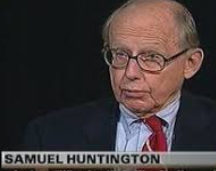 "France, in particular, has undergone a lightning civilizational collapse whose dramatic significance no one seems to have understood. This nation, which for a thousand years had been the intellectual spearhead of Western civilisation, fell apart at in the years 1970-1980. In less than two generations, there has been an explosion of illiteracy, common crime, political corruption, and a large-scale reshuffling of its population, which has deposed it as the historic nation of Western Europe. The French, paradoxically, refuse to look at their situation objectively and seem to want to settle into denial until they die. The future will clearly be without them" (S. Huntington, 1997).
"France, in particular, has undergone a lightning civilizational collapse whose dramatic significance no one seems to have understood. This nation, which for a thousand years had been the intellectual spearhead of Western civilisation, fell apart at in the years 1970-1980. In less than two generations, there has been an explosion of illiteracy, common crime, political corruption, and a large-scale reshuffling of its population, which has deposed it as the historic nation of Western Europe. The French, paradoxically, refuse to look at their situation objectively and seem to want to settle into denial until they die. The future will clearly be without them" (S. Huntington, 1997).
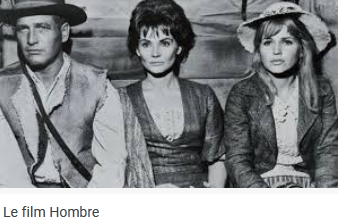
"The structure that is going to disappear, the lock that must be broken, is the nation" (E. de Rothschild, 18-7-1970).
"The French nation is dissolving in Europe, globalisation, immigration and multiculturalism" (E. Zemmour on 6-12-2009).
"Let the dead bury the dead -- the trouble is, with you, the living are not much better" (Paul Newman and Diane Cilento in "Hombre").
"He asked for my daughter's hand in marriage, he bit his fingers off, it's making his feet grow".
"My age? Since I was 18, I'm 75. I'm tired of human stupidity and enthusiastic about beauty".
"When I was eleven, I was in love with a little nine-year-old trapeze artist whose stage name was Mercédès: you could say that my love life began on a high note.
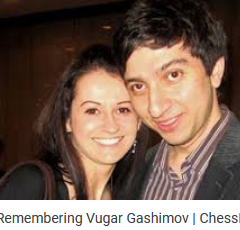
"He who does not create, crouches".
A Rook endgame featuring, after a float, a tragically missing player. It gives us the opportunity for a general review of Rook and "e" & "f" pawns against "g" pawn.An amusement composed by the great player of our game of the day, its prolongation in 45 moves by the king of the kilometre, then a case of discouragement (understandable) against the same hero. The man who gets discouraged must remind Christian Bauer of something.
A festival of under-promotions from a regular of our course, whom I met (already) almost 5 years ago: great humour, but he never laughs! Very courteous and modest, and a great talent. "Not like some people", that's what you were expecting, right? Well, so be it!
Exercises: a failed rescue of the aforementioned Spanish-French-American genius, a prestidigitation rook by the same one, a rescue of our French woman champion who almost got checked a fortnight ago (would you have known how to finish it?) and another magic rook with Queen and Bishop against Queen.
"Morphy was above all an artist; and the best way to appreciate an artist is not to dissect him" (Ph. W. Sergeant, author of a magnificent 1916 book on Morphy)
. 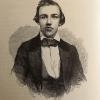
We have nothing against this profession of faith. But if the analysis engines of the modern era, beyond a few unimportant mistakes, give us new aspects of the depth of his game, why deprive us of it?
Morphy was a great friend of Arnous de Rivière, a regular in our course (see Belgrade 2016)!
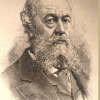
The latter is featured both in our game of the day and in an incredible endgame, an exercise we will develop in the next session.
PM had a few things in common with Fischer: a clear look, a willing jaw, a delightful smile, a perfect behaviour in front of the board. Yes, a great respect for the concentration of his opponent, which is not given to all. Just a habit: looking at the sky when he was sure to win. Also, the desire to analyse the game with his opponent. Sometimes bad starts. And later, a great mistrust for everything, which some were quick to call "paranoia".
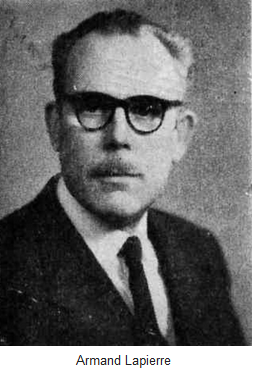
Training: a lot of sacrifice and testing. The easiest seems to be the Zepler, but I don't think so. Issler and Groeneveld illustrate the same theme. Which do you think is my favourite of the two? And yours? To match, it's up and to the right. In the last 2#, three units can occupy a square, which one would you place there?
Two cute 3# from the former president of the French problemists, then an illustration of the "Swiss theme": the threat set up by the 2nd white move is changed from the one this same move set up as a try, so the parry is now weakening. A cousin of the Roman theme. Then an equally logical 5#, where a less conclusive defender is selected.
h#2 easy, an h#7 with just a white pawn, finally a selfmate 4# with a twin, this is quite rare, but very affordable. You will be rewarded for your research by the beauty of the mates.
Have a good time. See you in 3 weeks if Deus vult..
Comments
1 Alain On Friday, october 08, 2021
https://actualitte.com/article/102483/edition/l-introuvable-citation-qu-eric-zemmour-prete-a-huntington-dans-son-livre
qui n'est pas forcément la vérité révélée, mais mérite d'être lue en entier.
Si cela vous gêne, supprimez la référence et considérez que je suis l'auteur de ladite phrase, ce que j'aimerais !
Merci de votre intérêt.
2 Joe Kapp On Saturday, september 25, 2021
3 Alain On Wednesday, march 11, 2020